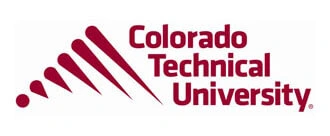The Doctor of Management in Leadership program at Colorado Technical University allows students the opportunity to study research topics in business and management alongside specialized directorial and planning subjects. Read on to find out more about this program now.
<h2 id="section---FrequentlyAskedQuestions">Frequently Asked Questions</h2>
<h3 id="section---WhatKindOfProgramIsIt">What Kind of Program Is It?</h3>
<p>Colorado Technical University's Doctor of Management in Leadership program is designed to give students the chance to study current techniques in the business world for dealing with individuals and groups of people, as well as resources, in an efficient and a strategic manner. Coursework looks at basic research information, such as quantitative methods and application of research, as well as specialized management topics. This program also contains concentration courses which are designed to focus specifically on developing leadership and planning abilities. Students will be asked to maintain an acceptable GPA and be able to defend their doctoral research in the form of a dissertation. This program is available online and at select campuses.
</p>
<h3 id="section---WhatAreThePrerequisites">What Are the Prerequisites?</h3>
<p>Individuals who apply to this program should have the ability to lead others while keeping track of and managing resources. They should already have a bachelor's degree, and work experience is a plus. Applicants to all of Colorado Technical University's programs must have a high school diploma or equivalent; some programs have additional requirements.
</p>
<h3 id="section---WhatAreTheCourseRequirements">What Are the Course Requirements?</h3>
<p>This Colorado Technical University is broken down into two areas. There are 20 credits allotted to concentration courses and 76 credits allotted to core courses, for a total of 96 required credit hours. A large part of core coursework consists of doctoral research classes.
</p>
<p><u>Doctor of Management in Leadership Course Requirements</u>
</p>
<p />
<table border="1"><tr><th>Course Code</th><th>Course Name</th></tr>
<tr><td>MGMT802</td><td> Management Theory</td></tr>
<tr><td>MGMT804</td><td> Principles of Research Methods and Design</td></tr>
<tr><td>MGMT808</td><td> Management and Ethics</td></tr>
<tr><td>MGMT812</td><td> Qualitative Research Methods</td></tr>
<tr><td>MGMT814</td><td> Quantitative Research Methods</td></tr>
<tr><td>MGMT818</td><td> Leadership Theory and Development</td></tr>
<tr><td>MGMT822</td><td> Application of Action Research</td></tr>
<tr><td>MGMT824</td><td> Strategic Thinking and Organizational Alignment</td></tr>
<tr><td>MGMT828</td><td> Practice and Theory of Consulting and Intervention</td></tr>
<tr><td>MGMT832</td><td> Organization Innovation and Scenario Thinking</td></tr>
<tr><td>MGMT860</td><td> Doctoral Research I: Principles of Research and Writing</td></tr>
<tr><td>MGMT861</td><td> Doctoral Research II: Annotated Bibliography</td></tr>
<tr><td>MGMT862</td><td> Dissertation Research Process</td></tr>
<tr><td>MGMT863</td><td> Doctoral Research III: Dissertation Literature Review</td></tr>
<tr><td>MGMT864</td><td> Doctoral Research IV: Dissertation Methods</td></tr>
<tr><td>MGMT865</td><td> Doctoral Research V: Dissertation Introduction</td></tr>
<tr><td>MGMT866</td><td> Doctoral Research VI: Dissertation Findings</td></tr>
<tr><td>MGMT867</td><td> Doctoral Research VII: Dissertation Discussion and Conclusion</td></tr>
<tr><td>MGMT868</td><td> Doctoral Research VIII: Dissertation Conclusion</td></tr>
</table><p><u>Concentration Courses</u>
</p>
<p />
<table border="1"><tr><th>Course Code</th><th>Course Name</th></tr>
<tr><td>LDR870</td><td> Self-Insight and Personal Development as a Leader</td></tr>
<tr><td>LDR872</td><td> Leading Change</td></tr>
<tr><td>LDR874</td><td> Special Topics in Leadership</td></tr>
<tr><td>LDR876</td><td> Leadership, Technology, and Social Media</td></tr>
<tr><td>LDR878</td><td> Advanced Career Strategies in Leadership</td></tr>
</table><h3 id="section---WhatCouldIDoAfterIGraduate">What Could I Do After I Graduate?</h3>
<h4 id="section---CareerOpportunities">Career Opportunities</h4>
<p>Graduates of this program could decide to pursue work with large or small businesses, in departments ranging from sales to human resources. They may be able to seek entry-level work as well as positions that require greater amounts of responsibility. These positions may demand that students be able to utilize their organizational and directorial abilities in various situations.
</p>
<p>Possible career paths include but are not limited to:
</p>
<ul><li>Business manager
</li><li>Human resources manager
</li><li>Marketing manager
</li><li>Entrepreneur
</li><li>Supply chain manager
</li><li>Financial manager
</li><li>Non-profit organization manager
</li></ul><p><i>CTU does not guarantee employment or salary. University grants or scholarships are based on established criteria as published in the University's catalog and are awarded after verification that the conditions of eligibility have been met.</i></p>


.svg)


